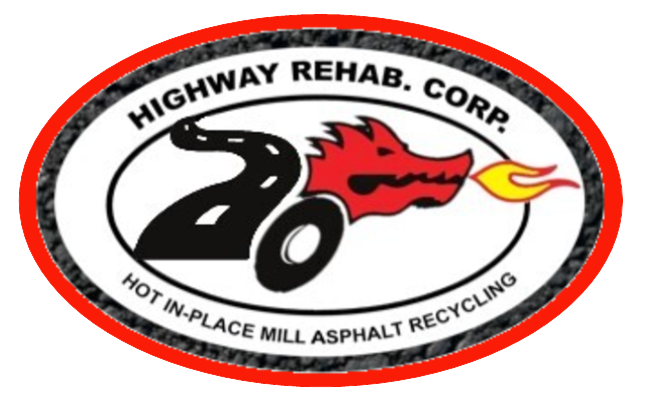ABOUT US

The company was started in 1981 by Ken Carr, one of the original founders of the Asphalt Reclaiming and Recycling Association (ARRA). With over 40 years of experience in Asphalt Milling and Hot In-Place Asphalt Recycling, Ken was the first to introduce Asphalt Milling to the United States through the Wirtgen Company.
In the 1970’s, road and bridge deck milling became commonplace throughout the U.S. Simultaneously, a number of contractors developed what is now known as Hot In-Place Asphalt Recycling, a low cost maintenance process that effectively reuses existing asphalt material. For over 40 years, Highway Rehab has focused exclusively on improving the techniques and equipment for Hot In-Place Asphalt Recycling. Today Highway Rehab is in the forefront of advancing the technology of Hot In-Place Asphalt Recycling by utilizing four (4) fully equipped custom designed recycling trains fabricated at the company’s facility in Alden, NY.
CALL US TODAY: 845-278-9645
OUR HISTORY

Hot In-Place Asphalt Recycling is the oldest recycling discipline with ARRA, the Asphalt Recycling & Reclaiming Association. When the organization was first formed in 1976, almost all of the members were contractors who performed heater-scarification work. Ken Carr and Jerry Starbuck were among the founding members of ARRA.
In 2020, two longtime Highway Rehab employees purchased the company from Ken Carr. Tom Colella and Michael Haggerty have over 50 years combined experience in the highway recycling industry. They plan to carry forward the legacy, success, and growth that Ken has instilled in Highway Rehab and continue to service the Northeast and New England regions.
OUR ECONOMICS

Hot In-Place recycling provides a very low cost maintenance strategy that enables the public works official to effectively re-use existing material.
In a period of rapidly increasing costs and limited funding, Hot In-Place Asphalt Recycling presents the opportunity to spread available dollars over a much greater area. Roadway deterioration can be suspended, pavements preserved and upgraded, and costly reconstruction avoided.
